Introduction
As more electronic items enter the waste stream, electronic waste recycling has become more popular with the passing days. Handling the sheer volume of e-waste in an effective and timely way, in terms of environmental impact, is a herculean task. To begin, specific logistical requirements for gathering e-waste are required. Furthermore, e-waste encompasses a set of hazardous substances that are highly hazardous to human health and the environment, necessitating specialized treatment to prevent toxins from leaking and dissipating into the environment.
It is also a valuable source of metals such as gold, copper, and silver, which can be retrieved and reintroduced into the production cycle. E-waste recycling has become a profitable business as a result of this attribute of e-waste.
Table of Contents
E-waste and its impact
Since toxic materials are used in the manufacturing of electronic products, electronic waste can cause extensive environmental harm. Hazardous chemicals like mercury and lead are present in some form or another in these wastes. E wastes would result in lead leaching into groundwater when dumped into landfills. When a Cathode ray tube is crushed and burnt, poisonous gases are released into the atmosphere
E-Waste in India
Since e-waste is not collected separately in India, there is no consistent data on the amount produced and discarded each year, or the associated environmental risk. In India, the primary way of getting rid of outdated electronic items is to exchange them with retailers while buying a new commodity.
According to a study on computer waste published by Toxics Link, a New Delhi-based NGO, India's businesses and individuals discard 1.38 million personal computers each year. Auctions are used to sell obsolete machines from the industry sector. Occasionally, obsolete computers are donated to educational institutions or nonprofit organizations for reuse.
E-waste management in India: Regulatory framework
Given India's extensive environmental legislation, no special rules or guidelines exist for the management of electronic waste. E-waste is not classified as hazardous waste under the Hazardous Waste Rules (1989) until it is proven to contain higher concentrations of certain compounds. The Hazardous Wastes (Management & Handling) Rules, 1989 cover E-waste under Lists A and B of Schedule-3. As a result, the Ministry of Environment and Forests must grant relevant consent for the import of such waste.
To raise awareness about ecologically responsible electronic waste management, the Indian government has taken the following actions:
- The Central Pollution Control Board (CPCB) conducted numerous sessions on electronic waste management in cooperation with Toxics Link.
- A National Working Group has been formed to develop an E-Waste action plan.
- The Indian Telephone Industries' Department of Information Technology has set up demonstration projects for recovering copper from printed Integrated Circuits.
Are there any obstacles in E-waste management?
- The lack of solid data makes it difficult for regulators to develop an e-waste management plan and for businesses to make better investment decisions.
- The absence of a secure e-waste recycling system in the formal sector, and hence having to rely on the informal sector's capabilities, pose serious health and environmental risks.
- Owing to the unavailability of an effective consumer take-back program, only a small percentage of e-waste trickles down to recyclers.
- The current e-waste recycling mechanisms are entirely business-driven and have arisen also without the involvement of the government.
Strategies to manage E-waste in India
Reducing the volume of E-waste is the ideal route for having to deal with it. Design engineers should make sure the product is made to be re-used and must be repairable. The next stage of prospective options for reducing e-waste is reuse and recycling. The amount of e-waste produced is reduced by recovering metals, plastics, glass, and others. It is the need of the hour for manufacturers and legislators to act reasonably and address the various critical components in a coordinated way.
E-waste recycling in India
Most abandoned appliances comprise salvageable components that could be coupled with other used machinery to make a functional unit. Systemic infrastructure projects for the environmentally sound handling of e-waste, including e-waste collection, storage and disposal, must be provided at national and regional levels. Regulatory bodies should validate such facilities, and if necessary, adequate incentives should be given.
Eco-friendly recycling of E-waste necessitates advanced technology and procedures that are not only costly but also necessitate specialized training and experience. The ability to acknowledge or ascertain the presence of dangerous or possibly toxic constituents, as well as highly desired constituents, and then employ the company's skills and process mechanisms to effectively recycle all of these streams is needed for the proper recycling of complicated structures.
E-waste recycling business in India
To be able to start a business related to E-waste recycling in India one must know about the type of business model to be adopted and the cost to be incurred in various requisites like site, factory, machinery, operational cost etc. Prior to setting up the business research about the know-how and market potential and learn about strategies to capture the market both online and offline.
E-waste recycling machine in India
- Different machines for recycling E-waste are as follows:
- double shafts shredder
- hammer crusher
- High-speed turbine grinding machine
- Magnetic Separator
- Belt Conveyor
- Suspension Magnet
- Vibratory Feeder
- Process: The air separator and the electrostatic separator would separate the waste material after it has been shredded, crushed, and grinded. It has a one-of-a-kind design, a high output, and low power consumption.
- E waste recycling machine price in India: E-waste recycling plant would cost nearly Rs fifteen lakh. Further E-waste dismantling plant would cost around 10 lakh.
Conclusion
The intrusion of e-waste, specifically computer waste, is complicating the already tricky problem of solid waste collection and Management. In collaboration with private investors and manufacturers, the formation of e-waste collection and recycling centres should be facilitated.
This portion of the site is for informational purposes only. The content is not legal advice. The statements and opinions are the expression of author, not corpseed, and have not been evaluated by corpseed for accuracy, completeness, or changes in the law.
BOOK A FREE CONSULTATION
Get help from an experienced legal adviser. Schedule your consultation at a time that works for you and it's absolutely FREE.
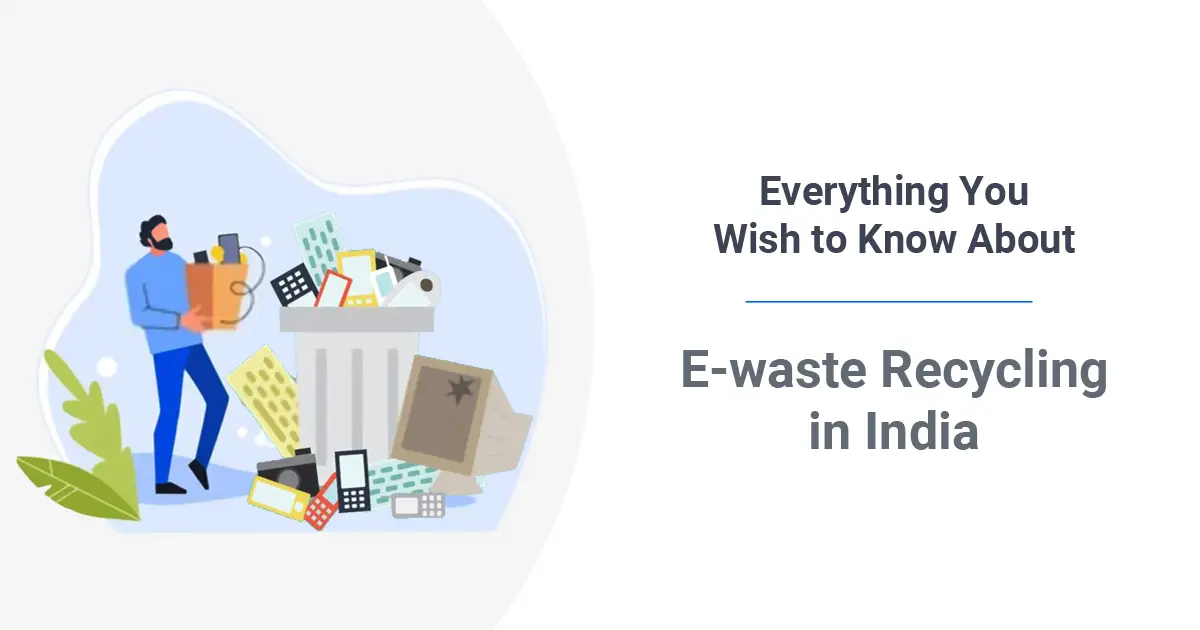

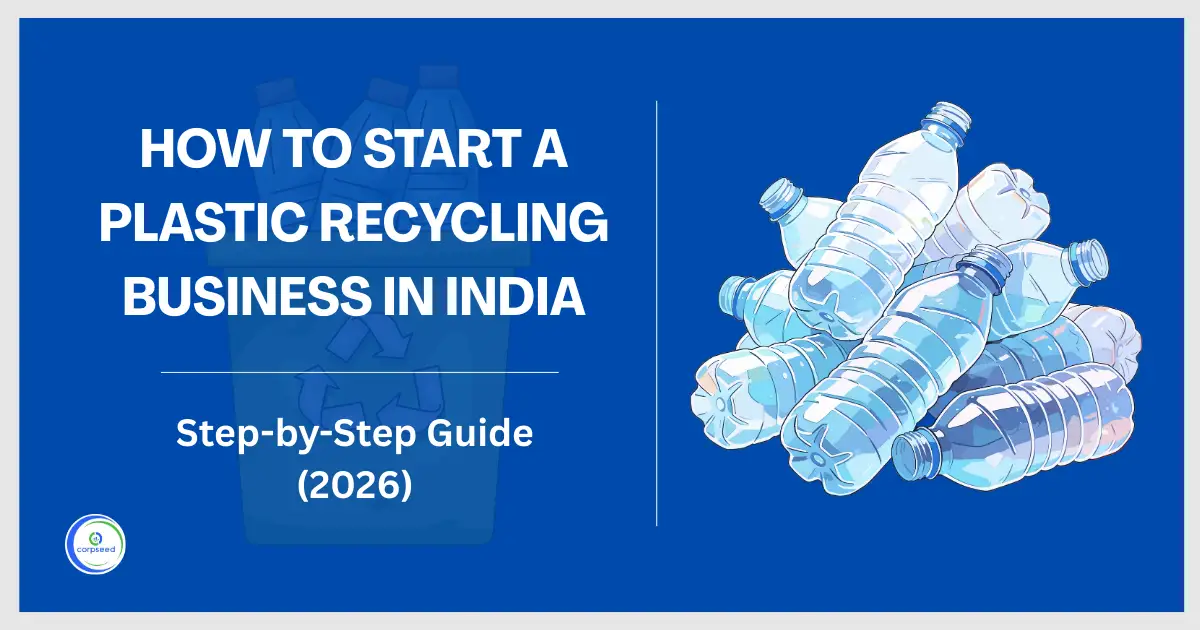
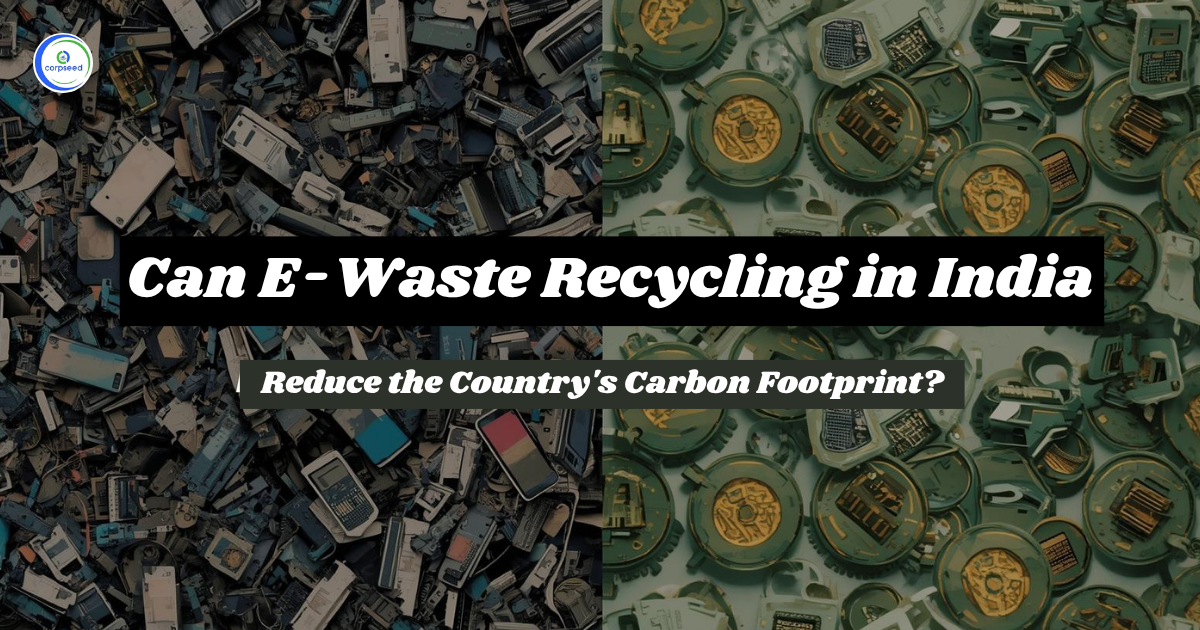
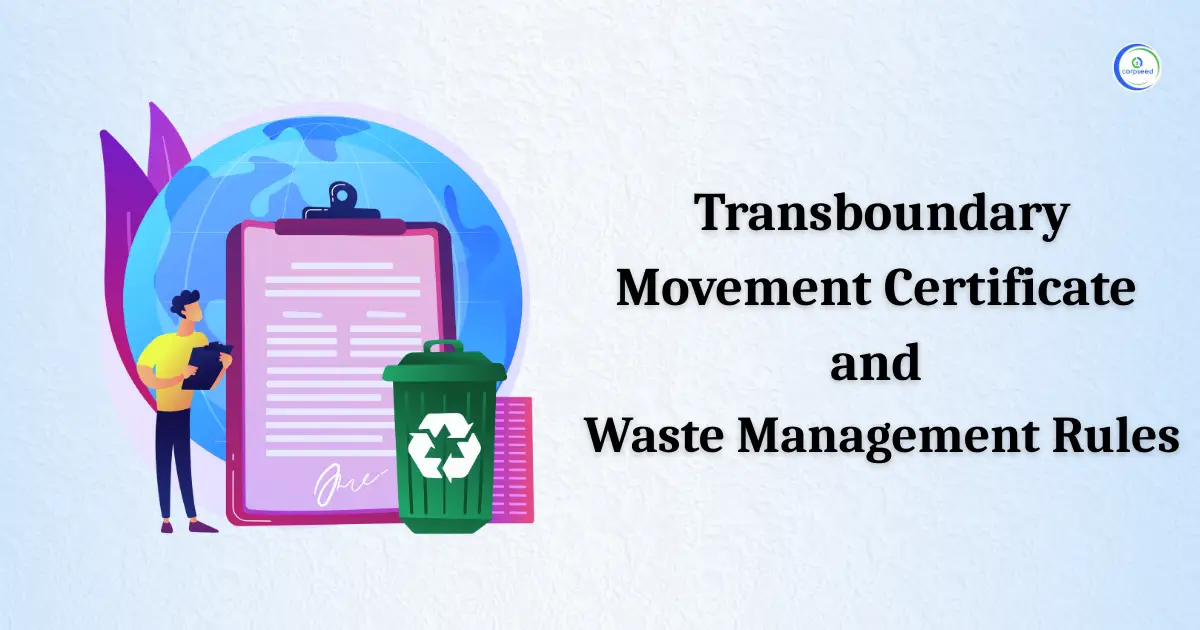
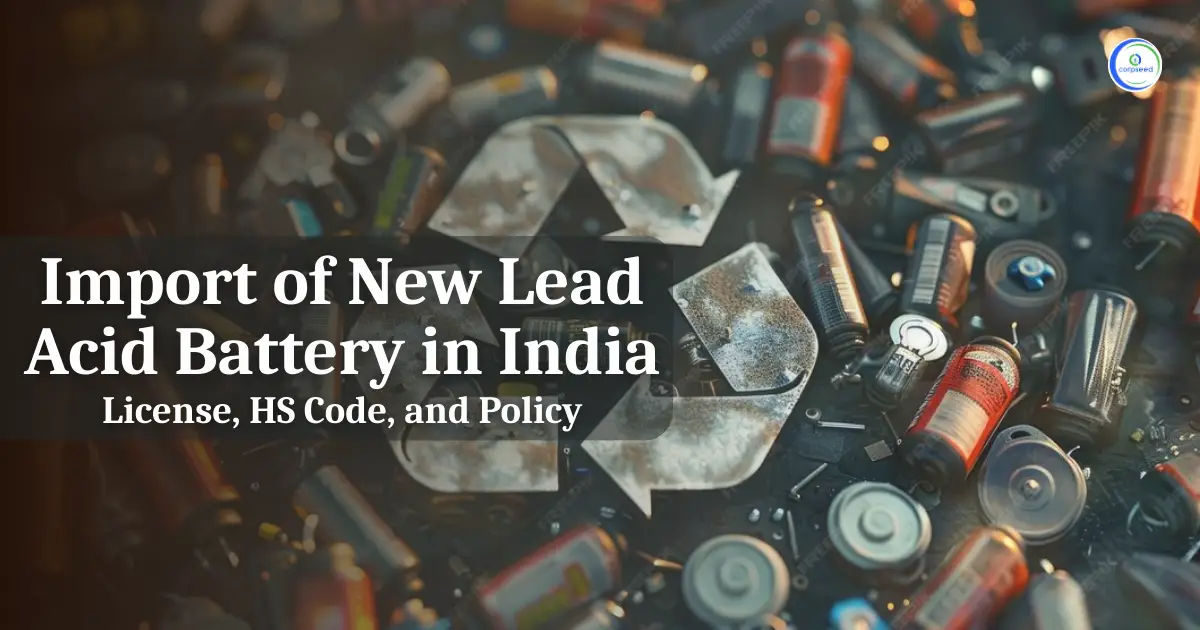

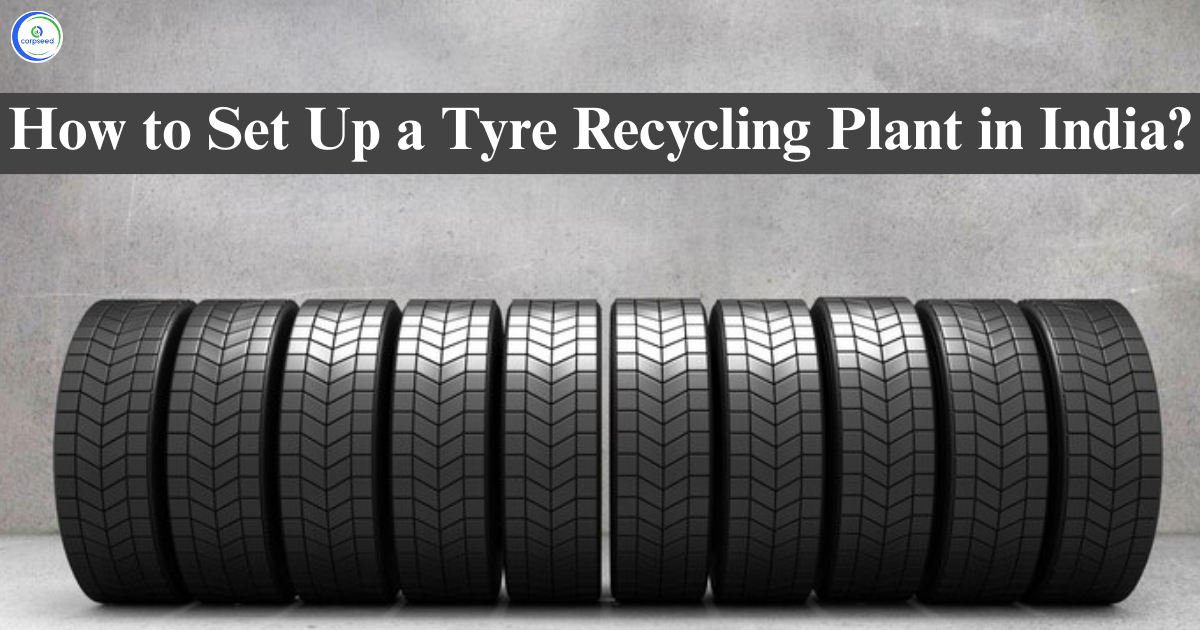
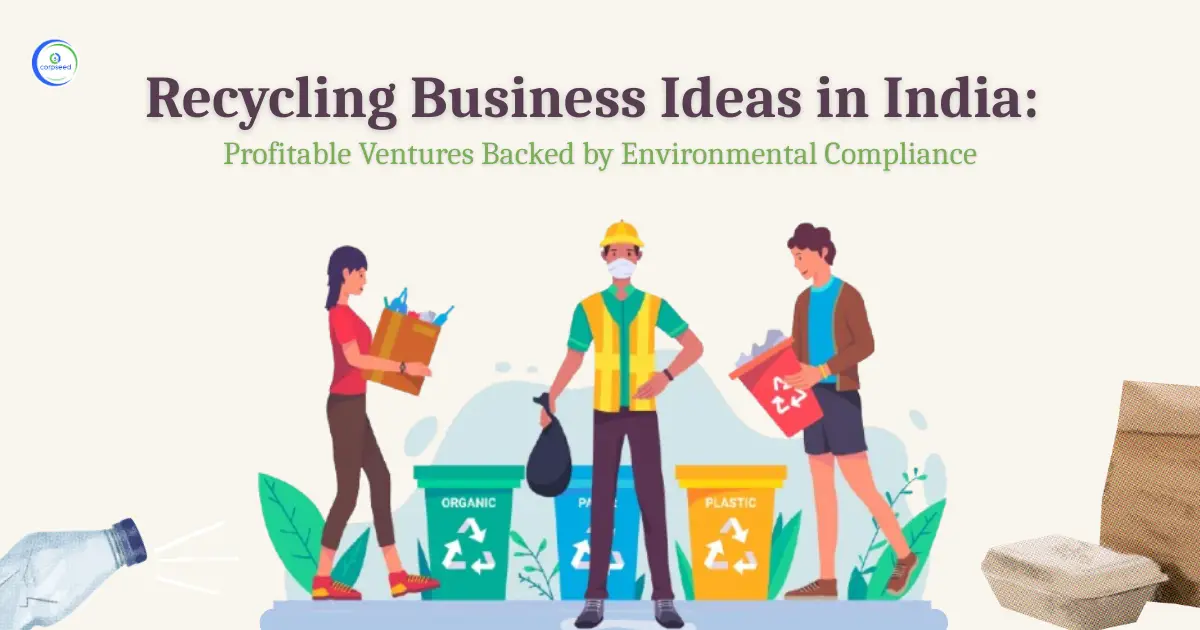
.webp)